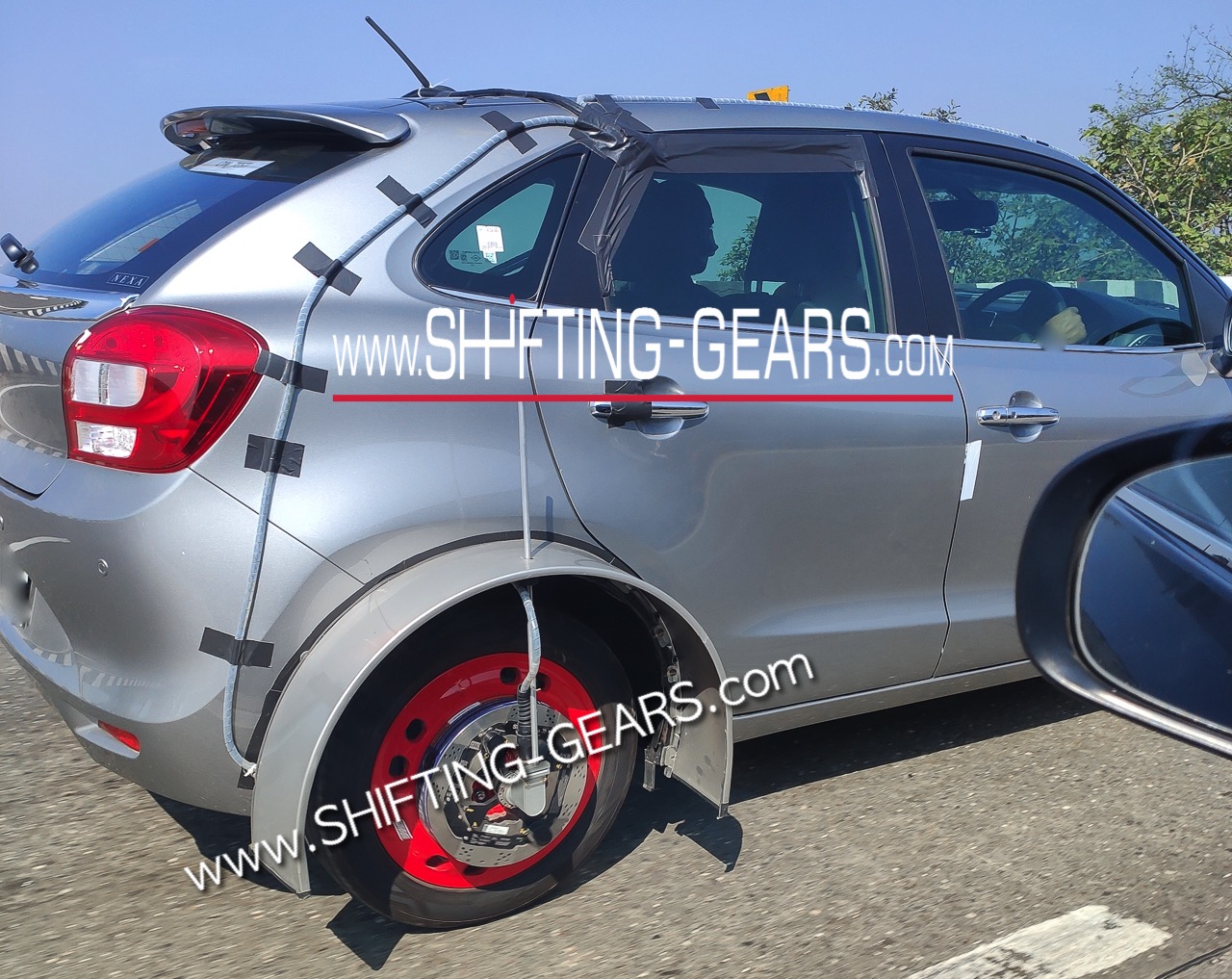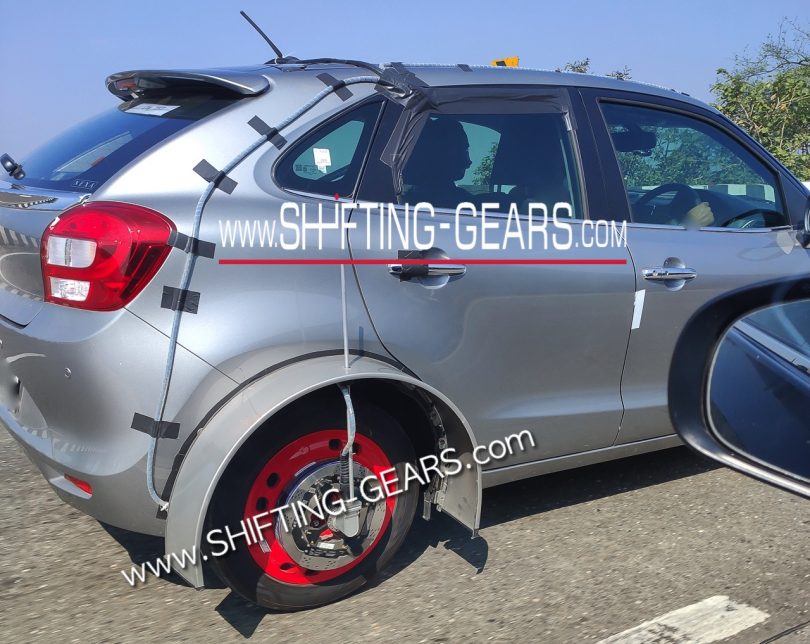The new era of tighter emission regulations and rise in the fuel cost has led many automakers towards developing fully electric mobility solutions. But given that our country does not have a full-fledged electric charging infrastructure as well as being a price-sensitive market, fully electric vehicles zooming noiselessly across our highways is still some time away. Thus hybrid technology seems apt for our country, but developing a hybrid electric vehicle from scratch is again an expensive bid for a price-sensitive market such as India.
The Indo-Japanese manufacturer in the has has already hinted that the company is likely to bring strong hybrid vehicles alongside its line-up of mild-hybrid and CNG fuel vehicles to further strengthen its eco-friendly mission in India. A test mule of the Maruti Suzuki Baleno with Strain Gauge apparatus on all four wheels has been spotted testing around the Lonavala ghats in Maharashtra which is speculated to be a strong hybrid version of the Baleno. Just a few days back, Maruti Suzuki had taken to social media to suggest that a BIG SURPRISE is coming soon to Nexa showrooms based on the Baleno.
To keep the costs in check it is also hypothesized that Maruti Suzuki could have found a way around the high-costs of a plug-in hybrid and the vehicle could be equipped with two-electric motors incorporated into the rear wheel hubs of the Baleno. The Maruti Suzuki Baleno which is powered by a front-wheel drivetrain is expected to keep the conventional engine and the rear wheels of the vehicle could be replaced by electric motor integrated wheels that can power the car completely with battery power.
The petrol engine is expected to recharge the batteries on the move or when the car is idling and in turn, the initial torque will be provided by the two wheel-integrated electric motors highly improving the efficiency of the vehicle as well as reducing the emission gases. The car could also be propelled in full-electric mode and depending on the size of the battery the range could be around 25-35 km. This will allow the user to switch to 100% emission-free mode within city limits reducing the air and noise pollution, which will be highly beneficial for metro cities like Delhi that are currently fighting with a pollution problem.
All this is mere speculation till Maruti Suzuki officially confirms what are their plans for the future, plans for the Baleno in 2021 and plans with hybrid or EVs in India next year.
The brand at the 15th edition of the Auto Expo 2020 in Delhi showcased the Suzuki Swift strong hybrid with a 92 HP/118 Nm 1.2-litre 4-cylinder petrol engine integrated with a 10kW (13.4 HP / 30 Nm) electric motor that not only provides torque-assist but also comes with features such as torque-fill, torque-boost and electric engine idling, saving substantial amounts of petrol. The Swift strong hybrid returns a fuel efficiency of 32 kmpl according to the JC08 (Japanese test cycle).
The brand manufactures the Maruti Suzuki Baleno in Manesar, Haryana for domestic consumption but the vehicle could be undergoing test close to ARAI (Automotive Research Association of India) which is the prime testing and certification agency for automobiles and automotive components in the Indian market. The car could be undergoing evaluations for Indian conditions as a strain test apparatus could be seen mounted on the hubs of the vehicle. Launch timeline is currently unknown, but given the fact that Maruti Suzuki just let 2020 pass without too many product launches, this could be a surprise in store for 2021.





